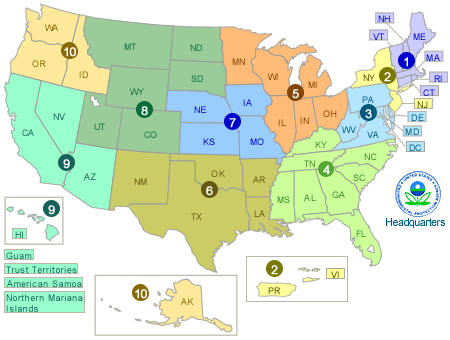EPA Regional Office Small Business Liaisons
The EPA Regional Small Business Liaison (RSBL) is the primary regional contact and often the expert on small business assistance, advocacy, and outreach. The RSBL is the regional voice for the EPA Small Business Ombudsman (SBO) and works with EPA regional offices and local partner organizations to share information, coordinate small business assistance, and implement program improvements. Please note that the role description applies to many but not all RSBLs as the role of each RSBL varies per regional office.
The Role of the RSBL
Policy and Planning: RSBLs often work with partner organizations to identify small business assistance needs, develop and implement solutions, and identify ways to reduce the burden of compliance on small businesses. For example, RSBLs can connect small business stakeholders with EPA rule writers to support small business input into the rulemaking process; advise rule writers on small business considerations; and ensure compliance assistance and outreach materials are written in lain language.
Coordination and Representation: The RSBL strengthens EPA’s work by staying informed of national and regional initiatives and sharing that information within the agency and with partner organizations. Within the agency, RSBLs coordinate with pollution prevention and other environmental teams to assure small businesses considerations are incorporated into regional work. Externally, RSBLs may coordinate regional events, such as webinars and telecoms, with state SBOs and Small Business Environmental Assistance Programs (SBEAPs) to improve collaboration among groups. Additionally, RSBLs can involve small businesses and assistance providers in the development of compliance assistance materials.
Advocacy and Outreach: The RSBL works to ensure small business needs are represented in the agency and provide small businesses with straightforward and easy-to-access information. This is accomplished by connecting small businesses with regulatory and technical assistance resources; advising partners on delivering straightforward and accessible assistance; promoting voluntary and partnership programs to help small businesses go beyond compliance; and identifying partnerships that advance innovative environmental technologies developed by small firms.

